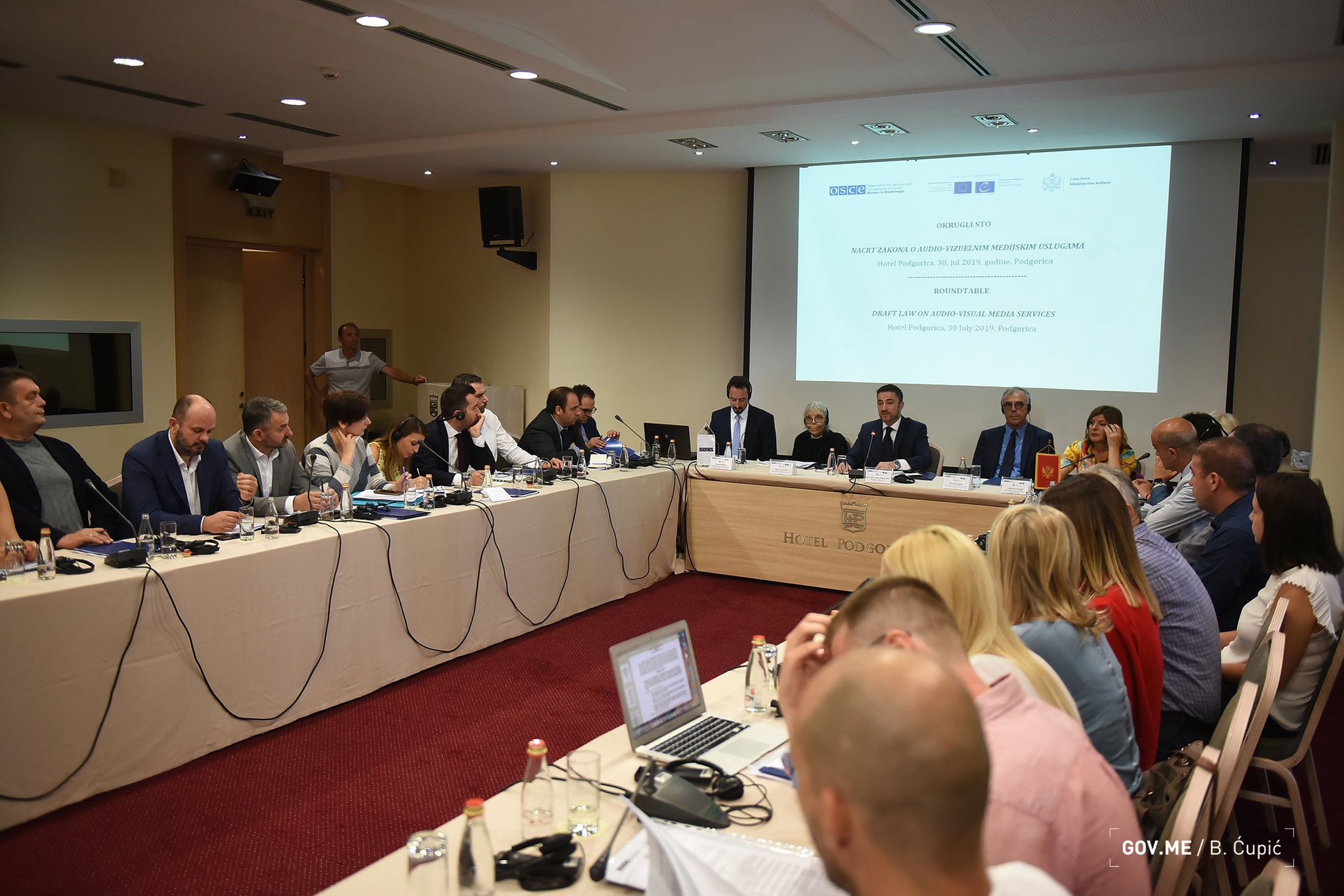30 July 2019 - The public consultation was organized in Podgorica by the Ministry of Culture of Montenegro, with the support of the OSCE Mission to Montenegro, the Council of Europe and the European Union Delegation to Montenegro on the proposal for the law on Audio-Visual Media Services. Participants included representatives of media companies and NGOs dealing with issues related to media.
In a lively debate, it was concluded that Montenegro, as a European Union candidate country, has to align its legislation with the EU’s Audio-visual Media Services Directive.
Minister of Culture Aleksandar Bogdanović recalled that in 2018, a legislative review was initiated to align the media law with international standards, supported by experts from the European Commission, the Council of Europe and the OSCE, and followed by a broad dialogue among all stakeholders.
“Due to the rapid development of the media industry, additional issues relating to the free and unobstructed work of electronic media need to be regulated by law. The draft Law on Audio-Visual Media Services, implementing the Directive of the European Parliament and the Council and amending the Audio-Visual Media Services Directive, was adopted at the end of 2018 by the European Parliament. In addition, the draft recommendations from the JUFREX Analysis of the Media Sector of Montenegro have been implemented,” said Minister Bogdanović, as Ministry of Culture of Montenegro reported.

He also emphasized that the Government is an constructive partner in the field of democratic and reform processes, based on EU standards of a regulated media environment and as an essential precondition for building an open, multicultural society, with full readiness for European integration.
Head of the Co-operation Section at the EU Delegation to Montenegro Hermann Spitz said that Montenegro, as an EU candidate country, has to align its legislation with the EU’s Audio-visual Media Services Directive and that the process needs to be inclusive, coordinated and transparent.
“The EU, together with our partners in the Council of Europe and the OSCE, is happy to provide expertise and help Montenegro with the Draft Law on Audio-visual Media Services. The set of three new laws, which are being prepared by Montenegro, as well as the ongoing call for a new Council of the Agency for Electronic Media, represent very good opportunities for improving Montenegro’s track record in the media field. This is something that citizens expect and that the EU will continue to monitor very closely,” said Spitz.
Head of the OSCE Mission to Montenegro Maryse Daviet recalled that two other media round table discussions took place this year: the first in February on the Draft Law on Media, and the second in March on the Draft Law on the public broadcaster, RTCG.
“Both roundtable discussions gave the public the opportunity to discuss the proposed amendments, as well as to hear the analysis of a number of international media legislation experts. With this third roundtable discussion, we hope to provide you with the same opportunity,” said Daviet.
Key recommendations of the Media Sector Analysis from 2017 were the basis for the legal reforms in Media law, said Lejla Dervišagić, Co-ordinator for the Council of Europe delegation.
“These reforms will be implemented in the second phase of the Council of Europe and EU’s joint JUFREX project: Freedom of Expression and Freedom of the Media in South-East Europe, over the next three years,” she concluded.
Read more news about lifestyle in Montenegro at TMN's dedicated page.








